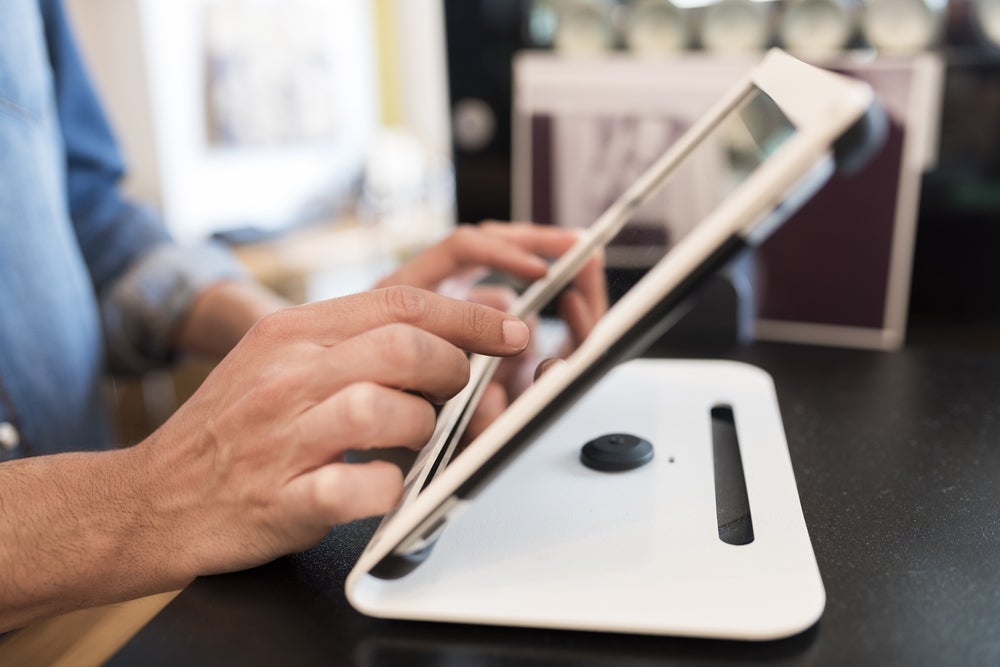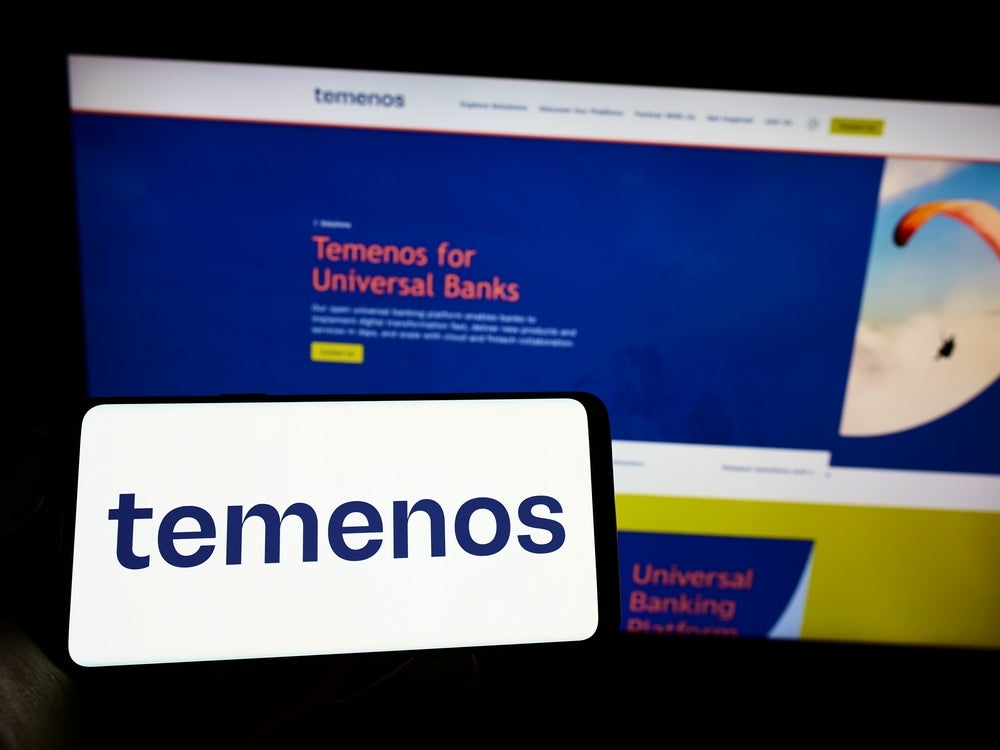BART trial produces killer mobile
app…
Combo cards come to Latin
America…
Egyptian start-up
selects paybox…
UK mobile banking
edges forward…
Zimbabwe halts electronic
transactions…
CONTACTLESS PAYMENTS
BART trial produces killer mobile app
A multifaceted ground-breaking trial on the San Francisco Bay Area
Rapid Transit District (BART) system using mobile phones equipped
with contactless payments and over the air (OTA) transaction
capabilities has been declared a resounding success.
payment is a killer application for NFC [near field communication] mobile phones providing convenience and speed to customers who take
transit and other public transportation frequently,” said Michael
Mullagh, CEO of ViVOtech – one of the trial’s backers.
software for the NFC-equipped mobile phones and the OTA card
provisioning servers used by mobile network operator Sprint Nextel.
Payment processing during the trial was undertaken by First
Data.
almost 9,000 trips on BART and topped-up their BART card balances
more than 800 times using the OTA facility. Underscoring Mullagh’s
enthusiasm, more than 80 percent of participants indicated that the
mobile wallet application was easy to use.
incorporated contactless payments at certain Jack in the Box
restaurants and the ability to download Jack Ca$h gift cards onto
their mobile phones and directions to the nearest participating
restaurant from smart posters.
ATMs
How well do you really know your competitors?
Access the most comprehensive Company Profiles on the market, powered by GlobalData. Save hours of research. Gain competitive edge.

Thank you!
Your download email will arrive shortly
Not ready to buy yet? Download a free sample
We are confident about the unique quality of our Company Profiles. However, we want you to make the most beneficial decision for your business, so we offer a free sample that you can download by submitting the below form
By GlobalDataAmazon.com gift cards via the ATM
Developed a decade ago, the ability to dispense prepaid gift cards
via an ATM’s cash tray was a technology that came somewhat before
its time. That’s no longer the case as patent holders of the
technology Better ATM Services (BAS) begin reaping the rewards from
a prepaid gift card market in the US that attracts annual spending
of over $80 billion.
online retailer Amazon.com has appointed BAS as a reseller of
prepaid gift cards, a move that will enable the cards to be
distributed via ATM networks operated by independent sales
organisations (ISO). According to BAS this opens up a market of
some 190,000 ATM’s nationwide.
Cash Management Systems (ACMS) and APTUS Financial – have teamed up
with BAS to launch Amazon.com card dispensing pilot programmes with
transaction processing to be undertaken by Columbus Data
Services.
view banking, ATMs are revolutionising the way gift cards will be
sold,” said ACMS’ CEO Carl Stein.
CONTACTLESS PAYMENTS
Stick-and-pay market gathers momentum
French smart card microprocessor developer INSIDE Contactless has
joined a growing number of vendors offering a quick solution that
enables contactless payments to be conducted using mobile phones
using stickers incorporating near field communication (NFC)
technology.
and offer a promising bridge to introduce contactless payment
capability in advance of NFC-enabled mobile handsets that will have
payment chips already built in, explained INSIDE Contactless’
executive vice-president of payments Charles Walton.
innovation to occur with how these stickers are used,” he
added.
October followed the launch by payments processor First Data of a
similar solution, the GO-Tag, in August 2008.
sticker arena goes to Israeli smartcard specialist On Track
Innovations (OTI) and Garanti Bank, Turkey’s second-largest private
bank.
of its Bonus Trink contactless payments programme which walked off
with the “Best Innovation in a Loyalty Programme” award presented
at VRL KnowledgeBank’s Cards & Payments Europe conference held
in Brussels in June this year.
MOBILE BANKING
UK mobile banking edges forward
Breaking new ground, Lloyds TSB has become the first UK bank to
offer a service enabling customers to use their mobile phones to
transfer money between in-house bank accounts. For its service
Lloyds TSB has selected MONILINK, a mobile banking platform jointly
owned by technology developer Monitise and payments transaction
processor VocaLink.
a growing demand for greater mobile functionality. This was
highlighted by a survey conducted by Lloyds TSB of its internet
banking users.
want to be able to keep tabs on their accounts using their mobile
phone and 53 percent want to be able to actively move money between
accounts.
TSB’s service enables users to view account balance, check the last
six transactions and receive a variety of text messages including
balance alerts.
for its internet banking service.
COMPANIES
XIRING shrugs off global economic woes
In a global economy where revenue growth has become hard to come
by, French remote transactions security solutions vendor XIRING is
forecasting that it will achieve turnover of €28.5 million ($38
million) in 2008, up 20 percent compared with 2007. Underpinning
XIRING’s optimism is rising demand for its O2S security
solution.
the Xi-Sign brand that include connected and unconnected EMV smart
card readers that operate on single-use password, two-factor
authentication or digital signature systems.
delivering 400,000 Xi-Sign units in the third quarter of 2008, an
order marking its first in France. Demand is being driven by
France’s adoption on 1 October of a regulation that shifts
liability for fraud-related losses incurred in online credit and
debit transactions from the merchants to banks.
reports that it received an order for 700,000 Xi-Sign units from
Italian Post during the third quarter.
SEPA
EC tackles SEPA direct debit costs
If adopted, a proposal put forward by the European Commission (EC)
would guarantee consumers that a cross-border direct debit made in
euros would cost no more than a corresponding payment made in their
own European Union member state.
of cross-border direct debits scheduled for November 2009 and aims
to eliminate a shortcoming in the existing Single Euro Payments
Area regulatory framework.
transfers, ATM cash withdrawals and electronic payments including
card payments made in euro up to an amount of €50,000 ($67,000)
have been subject to a regulation that guarantees that costs
correspond to those of domestic transactions.
EC’s proposal also addresses balance of payments’ (BoP) reporting
obligations that at present require payment service providers to
report all transactions above €12,500.
abolition of BoP reporting, a move the EC estimates would lower
annual statistical reporting costs in the EU from between €600 and
€800 million to between €75 million and €150 million.
MOBILE BANKING
Egyptian start-up selects paybox
A newly established Egyptian company Masary has a bold strategy: to
build the biggest mobile phone-based payments and money transfer
service for the unbanked in the Middle East and North Africa (MENA)
region.
has teamed up with German mobile payments technology specialist
paybox in Egypt where its initial focus will be the mobile phone
prepaid segment. Services will start with mobile banking, payments
and micro finance with bill payment applications to follow.
“The e-payment market in Egypt and the Middle East is not well
developed, which leaves huge investment and revenue opportunities
for Masary to take advantage of.”
paybox, the company’s CEO Eckhard Ortwein said the company was
seeking to partner with local organisations in the region that have
“the right vision for developing lucrative, innovative business
models.”
mobile subscribers in the MENA region.
INDUSTRY TRENDS
Making it pay to kick the paper habit
Growing awareness of environmental issues has become a key factor
in persuading US consumers to switch to electronic payment
transactions. Add a cash reward, and chances of winning over even
diehard adherents to paper transactions should increase
significantly.
Group’s (CFG) Green$ense, an industry-first initiative launched by
its two banking units Citizens Bank and Charter One offering a cash
incentive to customers willing to kick the paper habit.
cents for each electronic payment they make, up to $10 per month
and $120 per year with rewards deposited into a customer’s current
account monthly. Rewards cover signature and PIN debit card
purchases, online bill payments and recurring payments.
the programme receive a Green$ense MasterCard debit card made from
recycled plastic, are enrolled automatically in online banking with
free bill payments and receive paperless statements.
will save about 300 tons of paper in the first year.
one of the ten largest commercial banking companies in the US
ranked by assets and deposits.
PAYMENTS PROCESSING
First Data ties-up with CardinalCommerce
A successful product of the .com boom, CardinalCommerce has reached
another key milestone by securing First Data, the world’s largest
payments processor, as a customer.
developed what it terms “unique expertise” in assisting merchants,
merchant service providers and banks overcome technical
complexities involved in incorporating alternative payments brands
into their internet websites.
platform, which incorporates verification offered by Verified by
Visa and MasterCard SecureCode programmes, run the full gamut of 14
alternative payments brands including PayPal, Amazon Payments,
Google Checkout, eBillMe, Bill Me Later, NetCash, UKash and Ebates.
According to CardinalCommerce, deployment of a brand onto a website
is achieved 80 percent faster using its Centinel platform than via
any other integration path.
attracted over 31,000 merchants to the Centinel platform, a number
likely to increase substantially thanks to the alliance with First
Data which boasts over 100,000 electronic commerce merchants.
TRANSACTION PROCESSING
Zimbabwe halts electronic transactions
Zimbabwe’s central bank has halted all electronic payments in the
country to combat what it said was abuse by businesses and illegal
foreign exchange dealers. The halt comes at a time when annual
inflation – at 231 million percent and climbing fast – has left
banks struggling to meet demand for cash.
affected by the ban are the Zimbabwe Electronic Transfer and
Settlement System, a real-time gross settlement system linking the
country’s 16 commercial banks. The system was commissioned in
November 2002.
switching platform Zimswitch while cheques, once a much-used
payment instrument, have also fallen into disfavour because of the
astronomical inflation rate.
CONTACTLESS PAYMENTS
Combo cards come to Latin America
In a Latin American first, consumers in the Brazilian city of
Fortaleza have begun enjoying the convenience of contactless
payments on public transport and in retail stores, an advance made
possible by a development partnership between US contactless
payments specialist ViVOtech and Inteligensa, Latin America’s
largest payment card manufacturer.
is Libcard, a contactless prepaid card of which 2 million are in
use for public transport payments in Fortaleza.
project, 20,000 pilot Libcards were issued and in three months had
been used for retail purchases totalling $2.5 million. Another
120,000 dual-use cards are to be issued by the end of 2008 with the
ultimate goal being to replace 1.5 million transit-only cards with
dual-use cards.
stores in Fortaleza are already equipped with its ViVOpay 5000
contactless payment and top-up devices.
PAYMENTS PROCESSING
MyECheck talks up its prospects
Turmoil in the US banking industry provides a growth opportunity
for its alternative internet-based payment solution believes
MyECheck, a company formed in 2004 to harness opportunities
presented by the introduction of cheque imaging in the US.
Wall Street Journal which reported that most banks are reducing
customers’ credit card limits on a wide scale. This is in response
to soaring credit card bad debt write-offs which are forecast by
consultancy Innovest Strategic Value Advisors (also cited by
MyECheck) to reach $96 billion in 2009 , up 261 percent compared
with 2007 and 131 percent compared with its 2008 forecast.
for merchants of electronic cheques (e-Cheques) created remotely by
consumers who enter their current account details on a merchant’s
website. Data is transferred to MyECheck which lays claim to be
able to debit every US current account, even accounts that
automated clearing houses cannot such as many credit unions,
savings and loans associations and small banks.







